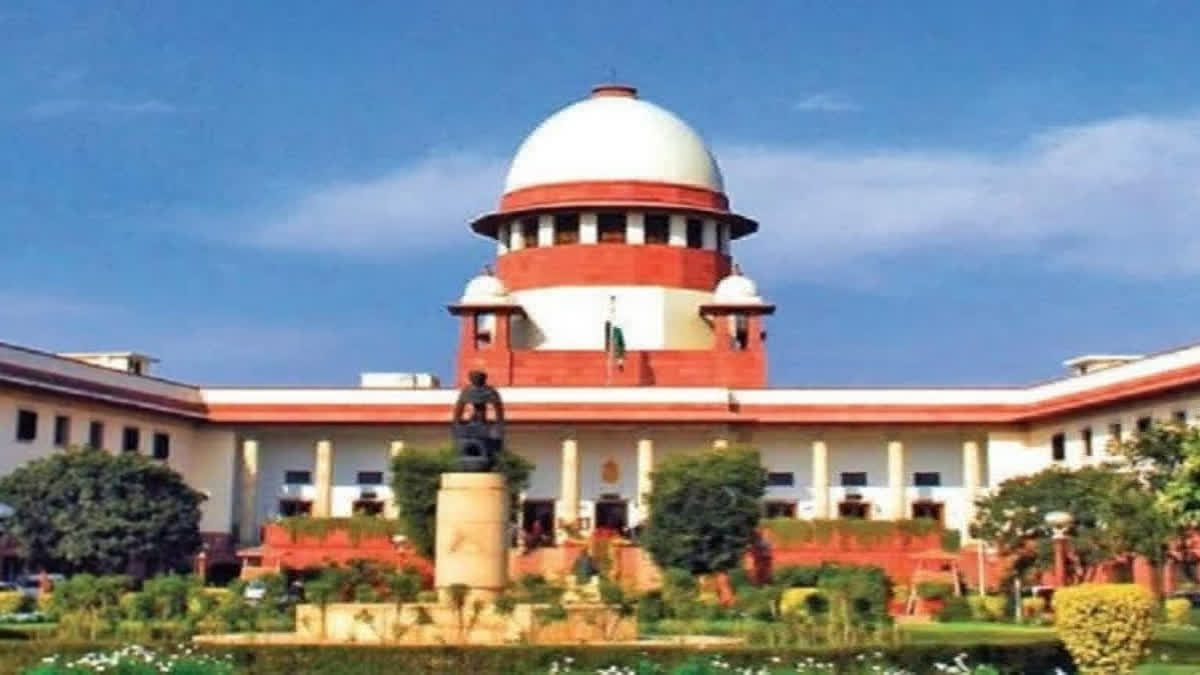New Delhi: In a huge financial boost for mineral-rich states, the Supreme Court on Wednesday allowed the states to collect royalty and tax dues from the Centre and mining lease holders on mineral-bearing land since April 1, 2005. The apex court laid down specific conditions regarding the retrospective applicability of its ruling affirming the legislative competence of states to levy taxes on minerals and mineral-bearing land in addition to the royalty imposed by the central government. On July 25, in a majority 8:1 verdict, the apex court held that legislative power to tax mineral rights vests with states.
An eight-judge bench led by Chief Justice of India D Y Chandrachud said that the submissions that July 25 should be given prospective effect is rejected. “A pragmatic solution to reconcile the financial interests of the States and the assesses can be achieved by proscribing the States from demanding taxes pertaining to Entries 49 and 50 of List II of the Seventh Schedule for the period before Kesoram (2004 judgment)”, said the CJI, who authored the judgment on behalf of the bench.
The apex court made it clear that states cannot impose penalties or levy interest on past tax demands. The bench said bearing in mind the consequences that would emanate from the past period, the following conditionalities are directed to prevail: “a. While the States may levy or renew demands of tax, if any, pertaining to Entries 49 and 50 of List II of the Seventh Schedule in terms of the law laid down in the decision in MADA (July 25 judgment) the demand of tax shall not operate on transactions made prior to 1 April 2005; b. The time for payment of the demand of tax shall be staggered in instalments over a period of twelve years commencing from 1 April 2026”.
The apex court declined to accept the Centre’s contention that the July 25 judgment should be given the prospective effect. The CJI said the doctrine of prospective overruling has been applied by this court in situations where the new declaration results in the invalidation of legislation, which would otherwise have been valid under the old declaration.
He said the doctrine has also been used where this court has declared legislation as ultra vires and in the case of taxing statutes, such a declaration would make the state liable to refund all amounts collected under the invalid legislation. “Therefore, this court declares the new rule to apply prospectively not only to secure the revenues of the state but also to protect the rights and obligations crystallized by persons and entities under the old regime”, said the CJI.
" The power to levy tax is an incidence of sovereignty. If we are to give a prospective application to MADA (July 25 judgment), it would result in a situation where the legislation enacted by the States in pursuance of their plenary powers under Entries 49 and 50 of List II may conceivably be invalidated based on a position of law which has been overruled. This would not be a constitutionally just outcome," the bench said.
The bench led by CJI and comprising Justices Hrishikesh Roy, Abhay S Oka, J B Pardiwala, Manoj Misra, Ujjal Bhuyan, Satish Chandra Sharma and Augustine George Masih, delivered the judgment. The judgment did not carry the name of Justice B V Nagarathna, who had dissented in the July 25 judgment.
During the hearing, the central government had vehemently opposed a plea of the mineral-rich states seeking refund of the royalty levied by it on mines and mineral-bearing land since 1989. Solicitor General Tushar Mehta, appearing for the Centre, submitted before a nine-judge bench led by Chief Justice of India D Y Chandrachud that Madhya Pradesh and Rajasthan, which are ruled by the BJP, wanted the judgment to be made applicable prospectively. The central government stressed that any order asking it to pay the alleged dues with retrospective effect will have a “multipolar” impact. The apex court had reserved the judgment on the issue on July 31.
The bench said that the judgment in State of West Bengal v. Kesoram Industries Ltd (2004) is an operative fact based on which many state legislatures have already enacted taxing statutes. Mehta pointed out that the total amount due by the assesses (which includes public sector undertakings) to the governments is substantial and will impose a heavy financial burden on the assesses.
However, the apex court said: “The payment or non-payment of the dues was thus made subject to the outcome of the appeals or petitions. It is a settled legal position that a beneficiary of an interim order of stay has to pay interest on the amount withheld or not paid under the interim order in the event the outcome goes against the beneficiary”.
The July 25 verdict had overruled a 1989 judgment, which held that only the Centre has the power to impose a royalty on minerals and mineral-bearing land. Some of the states, which are ruled by the Opposition, which are also mineral rich, are now seeking refunds of royalties levied by the Centre and taxes from the mining companies since the 1989 verdict.
Read More



